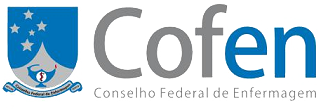0842/2008 - OS COLETORES DE LIXO URBANO DO MUNICÍPIO DE DOURADOS E SUA PERCEPÇÃO SOBRE OS RISCOS BIOLÓGICOS EM SEU PROCESSO DE TRABALHO
Urban garbage pickers of Dourados/ MS and their comprehension about the biological risks in their work process
Autor:
• MICHELLY ANGELINA LAZZARI - LAZZARI, M. A. - UNIVERSIDADE ESTADUAL DE MATO GROSSO DO SUL - <michellyange@yahoo.com.br>Área Temática:
Não CategorizadoResumo:
Introdução: A coleta de lixo urbano apresenta vários riscos ocupacionais. Objetivo: Identificar os riscos biológicos a que estão expostos os coletores de lixo urbano de Dourados/MS. Metodologia: Pesquisa qualitativa, segundo Discurso do Sujeito Coletivo de LEFÉVRE & LEFRÉVE. A população abrangeu 42 trabalhadores, lotados na empresa que presta serviços à Secretaria Municipal de Serviços Urbanos. A amostra foi por conveniência, conteve um número de 8 entrevistas. O estudo foi aprovado pelo Comitê de Ética de Pesquisa em Seres Humanos da Universidade Federal de Mato Grosso do Sul. A coleta de dados ocorreu de setembro de 2005 a janeiro de 2006, através de entrevista. As entrevistas duraram em média 40 minutos, foram realizadas no escritório da empresa, em horário de chegada dos funcionários, gravadas em fita K7 e transcritas. Resultados e Discussão: Os riscos biológicos, segundo os coletores, são acidentes com vidro, seringas, espinhos, mordida de cães e contato com substâncias do lixo. Os acidentes com perfuro-cortantes constituem porta-de-entrada para microorganismos como bactérias, vírus e fungos. A contaminação com vírus (HIV e Hepatites B e C) pode ocorrer através de acidentes com agulhas contaminadas descartadas nos resíduos. Conclusão: Os riscos biológicos na coleta de lixo urbano podem diminuir com orientações à população.Coletores de lixo, risco biológico, lixo.
Abstract:
Introduction: There is a lot of occupational hazards exposure for the urban garbage picker. Objective: To identify the occupational hazards that the urban garbage pickers of Dourados/ MS have been exposed to. Methods: A qualitative study according to LEFÉVRE & LEFRÉVE. The population was 42 urban garbage pickers who works for the Secretaria Municipal de Serviços Urbanos- Municipal Secretary of Urban Services. The study has a convenient sample of 8 interviews. The research was approved by the Ethics Committee of Research in Human of The Federal university of Mato Grosso do Sul. Data were collected from September 2005 to January 2006. the interviews had the average duration of 40 minutes, and had been done in the Empresa Financial’s office, when the workers arrived to start their journey. All of them were recorded in a K7 tape and transcribed. Results: the biological risks mentioned by the garbage pickers were accident with glass, syringes, thorn, dogs bite, and contact with substances found in the garbage. The accidents like scratches, or actions involving puncture cutting accidents are ways for microscopic organisms as bacterium, virus, fungus, infect the human’s body. The contamination with virus, like HIV and hepatitis B and C, can occur by accidents with wrong discard of contaminated needles. The garbage pickers have the risk to infect with the rabies virus, as they are susceptible for dogs attacks. Others agents are the rapidity that they have to work, and bad package of the garbage. Conclusion: the biological risks in the gathering of urban garbage can decrease if the population been oriented about how they can appropriate pack their garbage.Keywords: urban garbage pickers, biological risks, garbage.












